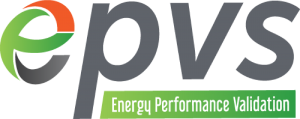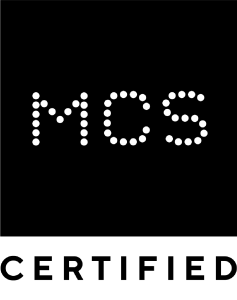When you’re doing all those internet searches in your quest for knowledge before taking the plunge into the world of solar, you’ll keep seeing the letters MCS.
Like all industry bodies, MCS is a term that’s very unfamiliar to anyone outside the renewables game.
But it is important that solar customers know that any company they use is reliable, professional and accountable.
That’s why MCS was formed now let’s demystify those 3 letters.
What is MCS certification?
MCS stands for Microgeneration Certification Scheme.
MCS is an industry standards organisation exclusively for the renewable micro-generation energy sector that is supported by Government.
They establish certification standards for all aspects related to renewable micro-generation of electricity, including products, installers, and associated processes, leveraging expert knowledge and research.
Microgeneration specifically refers to renewable heat or electricity generation which is 45 kW and below (heat) or 50 kW and below (electricity) – Energy Act 2004
MCS’s certification scheme is run on behalf of MCS by Certification Bodies who hold UKAS accreditation to ISO 17065.
Any company, installer or product that is accredited with MCS must adhere to recognised industry standards on quality, competency and compliance.
MCS certified 66% more PV contractors in the last 12 months than in the previous year
What does MCS give you as the customer?
In a few words, that would be ‘peace of mind’.
Before MCS, the domestic renewables market was a bit of a free-for-all all.
If you got scammed you’d have to rely on the court system since there was no industry body in place.
Since 2008, MCS has been evaluating renewable products, so you know you are getting something that complies with UK safety and quality standards.
Since then, MCS has taken all aspects of micro-generation, including domestic solar systems, and they cover:
- Equipment
- Workmanship
- Contracts
- Consumer rights
- SEG
- Warranties
What standards does MCS adhere to?
If you have an installer that is certified with MCS, they will have to adhere to the following standards.
Solar panel installation is MCS certified if:
- It has been installed by an MCS-certified installation company
- The products used are MCS-certified.
- Designed and commissioned after 15th July 2009
The installers must pass a huge amount of ’tests’ to become MCS approved, but we’ll just list the ones you need to be aware of for solar installations:
- Installers must be able to handle the design, installation, commissioning, and handover of solar PV systems
- The solar company, such as Solar Fast, must be able to pass on any technical information to the customer before they agree to the installation of their panels.
- All quotes must include an accurate performance estimate, drawing of the module layout, and datasheets for the products.
- All current consumer and electrical legislation must be acted upon – the company must know the latest changes, if any.
- Installers must ensure the building the work on is safe an complies with local regulations.
- All risk assessment must be current and thorough
- Manufacturer’s instructions must be followed to the letter.
- Any solar array must be easy to maintain and safe for emergency workers.
- All installation staff must be appropriately qualified and overseen by a ‘Nominated Technical Person’, who is separately assessed under strict criteria.
Of course, there’s no point having an MCS compliant installation if the products aren’t certified. So, products also need to comply to various regulations, including:
- Components must be built in compliance with the latest IET Code of Practice for Grid Connected Solar PV Systems
- MCS has a list of approved modules, the solar panels must be on this list.
- No bodging! All parts of the solar install must be fit for purpose.
View the MCS installers directory.
Solar Fast’s number is NAP-34003.
Is MCS certification a requirement for solar panel installation?
While it isn’t a legal requirement to have MCS approved installations or equipment, we really can’t see any reason you wouldn’t.
It would be like driving a car without an MOT, ignoring the legalities, cheaper, easier but much, much more dangerous and you aren’t going to be covered by any insurance
MCS installers aren’t generally more expensive, they certainly aren’t fly by night kind of companies, and they have taken the due diligence to ensure their staff and equipment are both up to standard.
It’s clear that MCS certification is driving public confidence in the installation of renewable energy generation at a domestic level.
MCS’s latest figures show that 60,004 installations were completed in the first three months of 2023.
85% of that, which is 50,719, was the installation of solar PV technology – meaning everything from panels and EV chargers to battery only systems.
That’s a 94% increase on installations in comparison to the first quarter of 2019, which is when the government’s FiT scheme was abolished in favour of Energy Company led SEGs.
The uptake in heat pump technologies remains high since the launch of the government’s Boiler Upgrade Scheme (BUS) in Spring 2022.
8,790 heat pumps made it into people’s homes in the first quarter of 2023, which proves it’s not just solar that’s taking off.
Battery storage has also increased in popularity, so it’s no surprise it’s the latest installation standard that MCS has introduced.
Do I need a qualification to install solar panels?
Legally anyone can pop up on your roof and bolt a few panels on, but you wouldn’t be covered by any insurance, public liability or legal recourse and they can’t connect it to your house electrics unless they are a qualified electrician who can provide a building control certificate.
For someone to add a circuit to their own or others’ houses legally, they need either a JIB Gold Card and AM2 assessment or, at the very least, a Level 3 Building Regulations for Electrical Installations in Dwellings qualification.
Really, they should also have a BPEC, C&G, LCL or EAL Level 3 in Solar PV, too.
First off, the installation team must use scaffolding to access the roof.
The roofer should be e qualified roofer, it is essential the electrics will be done by a qualified sparky and everything is signed off by an MCS registered fitter.
Getting a DNO will be difficult without a qualified installer but getting an SEG is almost impossible without MCS accreditation, let alone no official electrical qualifications.
So, other certifications are beneficial for solar installations?
As there are no official ‘you must have this qualification’ specs for fitting solar, here’s a roundup of things you should check when looking for an installer:
HIES Registered – the leading consumer protection organisation covering the installation of home energy products. HIES promise to ensure all consumers are respected, protected and educated on their home improvement journey.
EPVS Affiliated – These aim to protect consumers from receiving incorrect performance estimates, running costs, and where applicable, incentive income or grants by auditing the paperwork to ensure it meets their certification standard.
Also look out for:
Level 3 NVQ, or equivalent, in Electrical Installations (Building Structures).
Level 3, or similar, Apprenticeship as a Low Carbon Heating Technician.
Level 3 Technical Certificate and the National Electrotechnical Training (NET) AM2 certificate.
What if I want to install solar panels myself?
Installing panels yourself is something you can do if you really want too but, again, we wouldn’t recommend it.
That’s not to be patronising but, unless you are a qualified electrician, you could damage your home or yourself. Not to mention, if you have an electrical fire in your house, your house insurance won’t cover you!
Solar panels are DC electricity, which is much mor dangerous than the AC electricity that you get on your home.
AC voltage flicks back and forth at 50 times a second – DC voltage goes in one direction.
What this means in practical terms is when you grab an AC wire by mistake you get thrown away from the current but, with DC, the current will contract your muscles and you won’t be able to let go of the wire.
If it’s uses water, watts or wheels, get an expert in.
Also, you won’t be able to connect the system to the grid unless you are qualified.
Why has Octopus stopped requiring MCS certification and what does this mean?
This is a bit of a grey area now.
The world of renewables went batty, telling the whole internet that ‘Octopus had dropped their MCS requirements for SEGs’.
What people failed to add was what it actually says on the Octopus website:
So, what that means is you either have an MCS certified installation or you have to prove that your installation reaches MCS standards.
Best, and easiest, way to do that is to have it installed by an MCS accredited company.
How do installers get accredited with MCS?
To get MCS accreditation a company or installer must adhere to a few essential elements.
1. Familiarise themselves with the Standards
An MCS certified installer, is assessed against MCS 001 Standard and the specific technical Standard for the technology they wish to become certified for. These are available here but they include:
- Biomass Systems
- Battery Storage
- Heat Pumps
- Micro CHP
- Small and Micro Wind Turbines
- Solar PV
- Solar Thermal
2. Demonstrate Competency
Companies are asked to demonstrate how they ensure their staff are skilled, competent, and experienced. They must show that each individual fulfils everything needed to meet and maintain the requirements of the Scheme.
These requirements can be found in the MCS 025 Standard.
Each company must have a Nominated Technical Person (NTP) for each kind of system they install.
NTPs must complete one of the MCS approved training courses – they can be found here.
3. Commit to demonstrating quality
The company must have a demonstrable Quality Management System (QMS).
This doesn’t have to be reams of paper or complicated software, just suitable for your business.
4. A Commitment to Customer Care
The easiest way for a company to do this is by joining a Consumer Code that is approved by the Chartered Trading Standards Institute (CTSI).
There are two Consumer Codes available to join for MCS:
Renewable Energy Consumer Code (RECC), or Home Insulation & Energy Systems Quality Assured Contractors Scheme (HIES)
It doesn’t matter which one you choose, so long as it’s suitable for your business.
It’s the membership that’s important – it shows you are committed to complying with a high standard of consumer service.
5. A Commitment to Quality Workmanship
The company wishing to get accreditation will have to apply to a Certification Body for this set.
This body will make sure that the company installs all its appliances in line with the MCS Standards.
They do this by inspecting an installation site that you nominate.
The Certification Body you choose will guide you through the certification process and they all have different prices for becoming certified.
What do MCS assess?
The certification body working on behalf of MCS will book a time and date in with you to come and assess your company.
They will look at all aspects of the office management system and will need to look at one installation for each kind of technology you service.
They need the person you have nominated as the MCS ‘rep’ and the most senior Technical Person for each measure to be available on-site
They will then look at:
- A copy of the company’s handover pack containing everything about the installation – they will check the numbers add up and everything is relevant.
- Contracts – to ensure they are lawful.
- A visual assessment of installation work against the requirements of the relevant MIS document and Building Regulations
- The Technical Persons must demonstrate they understand the installation requirements of all the relevant technology
- Quality policy
- Corrective/preventative action procedures
- Product and purchasing procedures and records
- Stock handling and transportation
- Inspection and Testing procedure
- Equipment log (Inc. calibration records)
- Complaints and appeals (process and records)
- Certification Marks and document control
- Training/Competence
- Health and Safety
- Internal review (minutes, actions and records)
- Consumer Code membership
- Workmanship warranties
If the assessor finds anything amiss, company is given up to 8 weeks to rectify all the ‘non-conformities’ and present these to MCS.
Are there any MCS Fees for Installers?
Yep, you can’t get all that work for nothing!
The prices vary depending on who’s doing the assessment but, looking online, it’s between £600 – £700 plus VAT per technology per year.
Some places offer a discount for multiple technologies.
For solar alone, it costs £600 to £700. If you add heat pumps, it’s £1200 to £1400, and the pattern continues for other services.
Tools you can use to help with MCS accreditation
If you are looking to get MCS accreditation, or just want to find out more, these resources will help you out.







